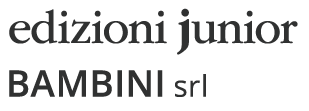PERIODICAL N. 1 2019
School change. Improve processes to enhance results
Sara Mori, Antonella Turchi
The present contribution is shaped as a review of the main normative and theoretical references regarding the change of the school organization in the last ten years in Italy. The aim is to stimulate in the reader a critical reflection on how the improvement of the school passes through a modification of the ways of thinking and acting of the subjects that are part of the institution. The article is organized in two parts: the first one has a normative character, the second one has a theoretical and experiential nature. The work intends to be an aid for school managers, teachers and psychologists, explaining the processes involved in the change of the school organization to encourage its promotion in different contexts.
Today’s school, a model to change
Paola Nencioni
The review examined and the author’s reflection describe the situation of the Italian school and the need to change the proposed teaching model starting from elements of innovation that involve the school in its entirety.
The words of improvement. How schools describe the change
Felice Dell’Orletta, Serena Greco, Simonetta Montemagni, Elettra Morini,
Francesca Rossi, Maria Teresa Sagri, Giulia Venturi
The present paper intends to illustrate the results of a research conducted with the use of Natural Language Processing tools (nlp) on what was declared by the schools in about 2500 Improvement Plans (indire model) with the aim of understanding strategic choices with a view to continuous improvement. The analysis allows to return both an overall vision of the Improvement Plans and some qualitative insights comparing subsets (by type of school, by different geographical areas or other common features) and in-depth analysis of strategic issues such as training and innovation.
Innovation and trasversal skills. A brief review of some international frameworks
Francesca Storai
The article proposes to address the theme of innovation through skills as a driving force for the transformation and renovation of the school. The aim is to provide a brief overview of the skills path starting from the indications of the European Union up to the description of three international frameworks which highlight the need to enhance the key competences for lifelong learning.
Entity vs incremental theory of intelligence. What do teachers think?
Maria Pia De Sandro, Lucia Bigozzi
This study’s aim is to investigate the belief in intelligence growthwise using self report questionnaires with 610 (57 males and 523 females) italian teachers K-12. It also investigates whether characteristics such as gender, age, educational qualification (high school degree or bachelor degree), years of experience, working condition (substitute or tenured teacher) and field of interest (liberal arts or scientific) determine a more incremental view on intelligence. Kruskal-Wallis test reportes that theachers generally showed an incremental-oriented belief about intelligence (367) and that substitute teachers prefer an incremental theory of intelligence the most (p < .05).
Negative effects of classroom noise on learning
Federica Stefanelli, Lucia Bigozzi
The present work aimed to offer an analysis of the literature regarding the effect of noise exposure on children’s learning. In particular, the consequences of repeated exposure of bad acoustics on students’ abilities of reading, writing, understanding, and processing of information in educational environments have been presented. Some researches showing how the impairment of students’ learning can be due to the wrong perception of teacher speech are mentioned. It is explained how the immature abilities to select and focus attention are factors involved in worsening the consequences caused by noise on the cognitive development of children. The limitations of the studies considered are examined, and some experimental research designs in the field of environmental noise and education are proposed. Indeed, it could be of interest for future research to conduct experiment aimed to understand better the consequences of lousy acoustic on students’ abilities to design suited primary prevention actions.
Goal setting and Self-monitoring. Training for the improvement of study skills
Iris Pelizzoni, Francesca Derba, Chiara Marchi
Numerous studies in literature are dealt with to investigate the prerequisitis of the study and to define the studies skills (Anderson, 1979; Cornoldi et al., 2001; Masterman & Lee, 2005; Kartika, 2008; Richardson et al.,2010). The strategies that result more effective concern training that combines the use of Goal setting and Self-monitoring (Miller & Kelley 1994); the use of reinforcements contingent show an increase of the time on task. This elaborate has wanted to reply some present studies in literature, implementing strategies of Goal setting and Self-monitoring in subjects with Special Educational Needs (Bandura & Schunk, 1981; Schunk & Pajares 2009). The results show meaningful improvements in the management of the time on task, considered fundamental prerequisite in the structuring of study skills (Miller & Kelley, 1994; Bryan & Burstein, 2004) and a significant qualitative rise of scholar outcome.
Functional interactions with a Differential Reinforcement of Other Behavior procedure
Luca Vascelli, Vanessa Artoni, Francesca Cavallini, Federica Berardo
The present research evaluated the effects of two Differential Reinforcement of Other Behavior (Catania, 2013) procedures, combined with access to reinforcer following the first question emitted after the elapse of a prefixed interval of time, for the reduction of verbal productions emitted by the participant at high rate and not contextually related to environmental stimuli. Differential Reinforcement of Other Behavior procedures consist of providing access to the stimulus with reinforcing properties following the passage of a time interval during which a specific response does not take place; this interval may have a fixed or variable duration, but the objective is in any case the reduction of the future frequency of emission of the target behavior. The participant was a 14-year-old male with intellectual disability and language delays, generalized oral dyspraxia, oculomotor abnormalities and febrile convulsions. Results show a decrease in the mean number of verbal productions with interrogative form emitted by the participant during the implementation of the indipendent variables compared to baseline conditions. It would therefore seem that the participant started to interact with peers and adults in a more functional manner.


